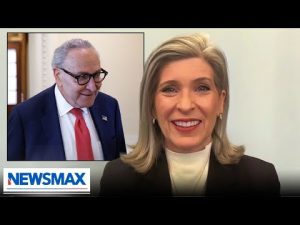A recent scandal has rocked the BBC, as it was revealed that the network deceptively edited a speech given by President Trump at the Ellipse on January 6th, 2021. This revelation was uncovered by The Telegraph, which pointed out that the BBC’s edits made it seem as if Trump was inciting violence. The network spliced together two clips that were actually separated by a staggering 54 minutes, altering the context of what the President had said. When looking closely, one can see how such editing could mislead viewers.
In the speech, President Trump clearly stated his intent to march to the Capitol to show support for his senators and congressmen. However, the clip that the BBC aired truncated this message to make it sound like Trump was calling for a fight. The revelation has led to two BBC officials resigning from their positions, which seems to suggest that even some insiders recognized the gravity of the situation. Following the uproar, Trump has threatened to sue the BBC, demanding a retraction and a public apology for what he calls defamatory and misleading statements. The letter outlines that if the BBC does not comply by November 14th, he may take legal action for a massive $1 billion in damages.
One of the key phrases missing from the edited clip was “peacefully,” a term that Trump allegedly used in his speech. He reportedly encouraged the crowd to march “peacefully and patriotically,” emphasizing that their voices should be heard without resorting to violence. This omission only adds further fuel to the fire, as it was an essential part of the President’s message that the BBC chose to erase. The outrage over this incident raises questions about the ethical responsibilities of media outlets and their tendency to prioritize narratives over facts.
Critics of the BBC’s actions have been quick to point out the disturbing trend of information manipulation that seems to be cropping up not just in the UK, but across the globe. This incident has led many to argue that the BBC, a renowned news organization, has succumbed to the same tactics employed by some American outlets known for their anti-Trump sentiments. It appears that information warfare is no longer confined to distant lands but is now part and parcel of media interactions in well-respected countries.
While BBC Chairman has acknowledged that an error in judgment occurred and that the edited version gave a misleading impression, many wonder if that is enough. Some argue that the network must face more severe consequences for their actions. After all, a media organization that operates under the veil of credibility has an obligation to provide accurate and fair reporting, rather than reheating political propaganda. Whether or not Trump will secure damages remains to be seen, but one thing is clear: the public’s trust in media has been shaken once again, and the demand for accountability has never been greater.







